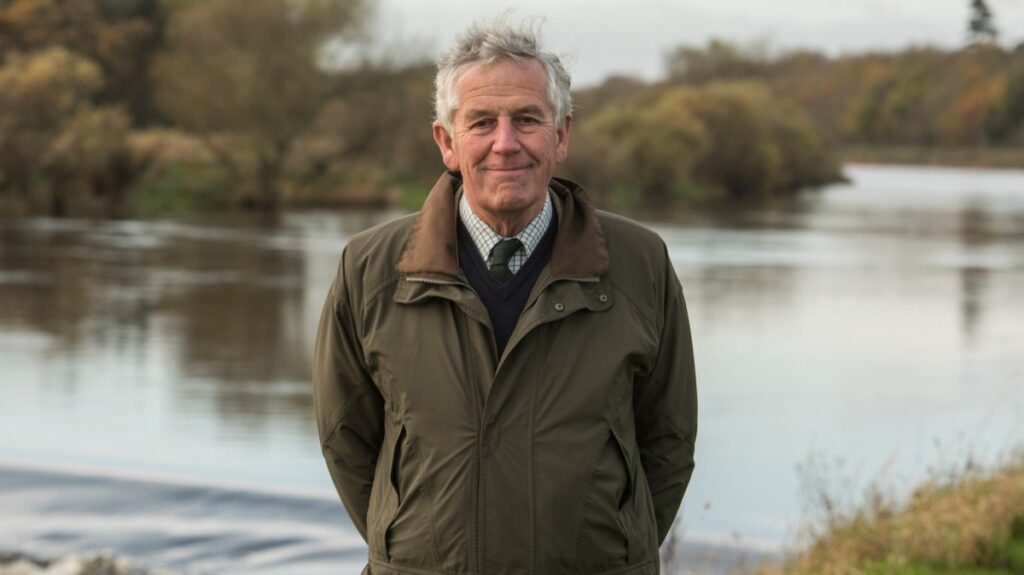
James Hepburne Scott, a visionary in the field of forestry and a pioneer of the voluntary carbon market in the UK, passed away on August 3, 2025, at the age of 78. His innovative efforts in promoting woodland creation and peatland restoration have left an indelible mark on environmental conservation and carbon offsetting strategies.
In the 1990s, as the UK government withdrew tax incentives, the rate of new woodland creation plummeted. By 2008, it had reached its lowest level in three decades. Hepburne Scott, recognizing the urgent need for change, saw an opportunity to reverse this trend by encouraging private investment in carbon capture. His work laid the foundation for what would become a significant movement in environmental conservation.
Innovating the Voluntary Carbon Market
Hepburne Scott’s interest in the voluntary carbon market (VCM) began in the early 2000s. The VCM, which predated the Kyoto Protocol of 1997, provided a mechanism for companies to offset their emissions through the creation of woodlands. In 2005, he submitted a proposal for a British version of the VCM to Durham University. This proposal caught the attention of Steve Prior, a fellow environmental enthusiast.
Together, they launched an initial project to plant woodlands on the Queensberry estate in Dumfriesshire. This effort was partly funded by a grant from Marks & Spencer. In 2006, Hepburne Scott and Prior founded Forest Carbon, a joint venture that would go on to support the creation of 275 woodlands, planting 13 million trees across the UK and Ireland.
Expanding Environmental Impact
Beyond tree planting, Hepburne Scott and Prior recognized the potential of peatland restoration in carbon storage. In 2022, they organized the UK’s first carbon-financed peatland restoration project in Sutherland, followed by a pioneering program at Dryhope in the Scottish Borders in 2017. These projects have restored over 1,400 hectares of degraded peatland.
Their work was instrumental in developing the woodland carbon code, launched by the government in 2011. This code set standards for species mix, biodiversity enhancement, public recreation, and the crucial concept of “additionality.” Hepburne Scott also supported the development of the peatland code, launched by the International Union for Conservation of Nature in 2015.
A Life of Service and Achievement
Born on July 21, 1947, James Patrick Hepburne Scott was the eldest of three children. His early life was spent in various estates across the UK and Ireland, where he developed a deep love for the land and nature. Educated at Aysgarth School and Eton College, he later attended Sandhurst, where he served in the Black Watch, including tours in Northern Ireland and Hong Kong.
After leaving the army, Hepburne Scott pursued a career in agriculture and forestry, eventually becoming a director at a grain company. His political ambitions led him to become a prospective Tory candidate, though he was ultimately unsuccessful in unseating the Labour incumbent.
His personal life was marked by a happy marriage to Christian Surtees, with whom he had three children. The family lived in Gloucestershire before moving to a farm in Lauderdale, where they built their home, Larkhill. In 2021, they relocated to Pewsey, Wiltshire.
Legacy and Recognition
Hepburne Scott’s contributions to forestry and environmental conservation were widely recognized. He served as president of the Royal Scottish Forestry Society and was appointed an honorary fellow of the Institute of Chartered Foresters. In 2023, he was awarded an OBE for his services to forestry in Scotland and the environment.
His passion for forestry and the environment was matched by his enthusiasm for music and history. A keen family historian, he chronicled the relationship between Sir Walter Scott and the Scotts of Mertoun and Harden. He continued to play music throughout his life, founding a small reels band in Wiltshire.
James Hepburne Scott’s legacy is one of innovation, dedication, and a profound impact on environmental conservation. His work in establishing the voluntary carbon market and promoting sustainable land management practices will continue to influence future generations.







